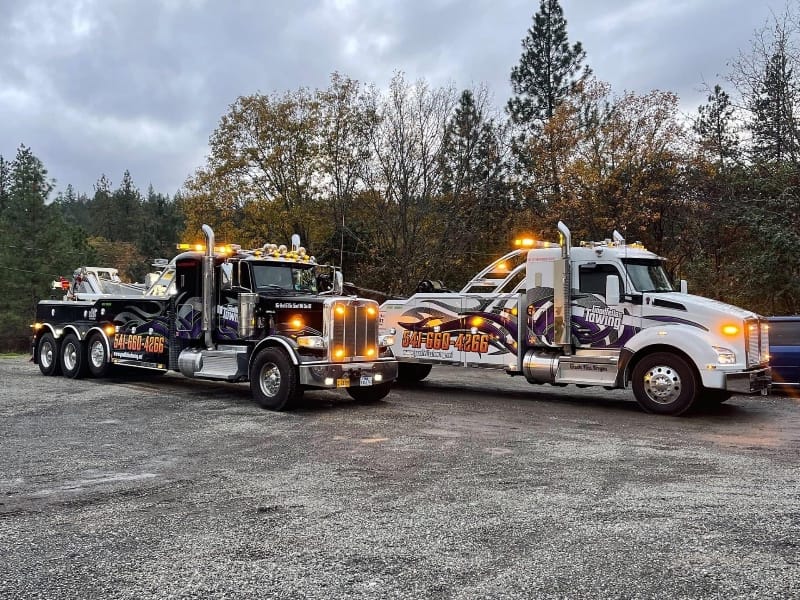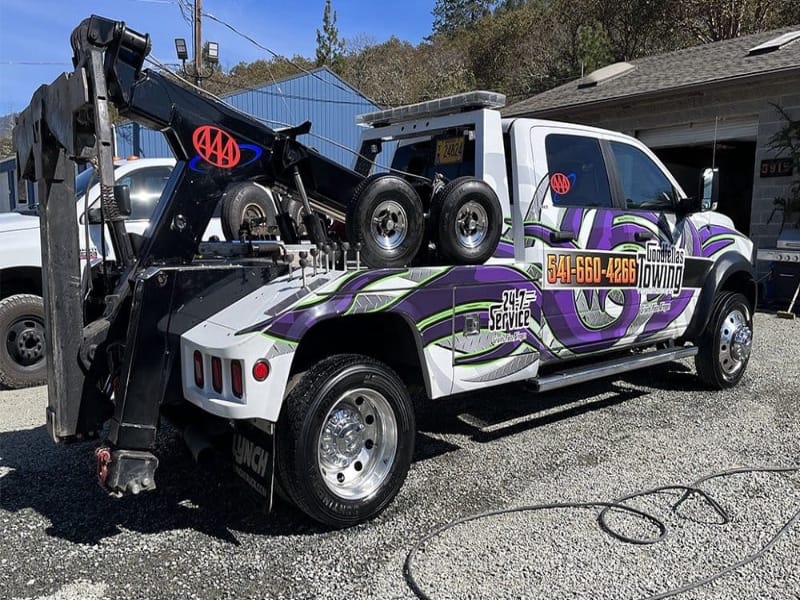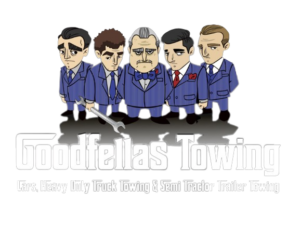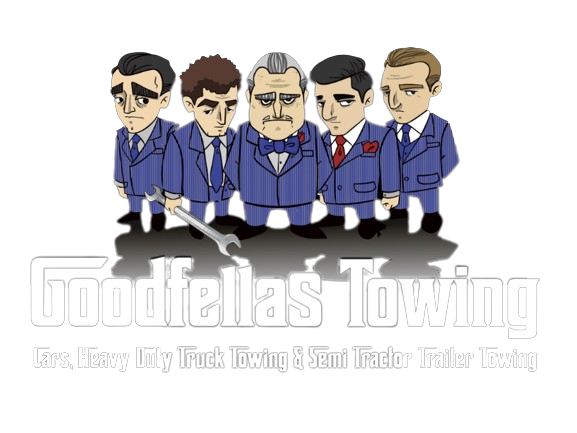The Weight of a Bad Decision
Ever seen a trailer swaying uncontrollably down I-5, or a pickup sagging like it’s dragging a building behind it? We have—and it usually ends the same way: with a call to our I-5 heavy recovery team. Towing capacity isn’t just a technical detail buried in your vehicle manual. It’s a safety line. Exceed it, and you’re gambling with your cargo, your vehicle, and everyone else on the road.

One Wrong Tow Can Trigger a Chain Reaction
For some I-5 heavy recovery calls we’ve worked on, the entire issue boiled down to one misjudged tow. It’s not always about massive loads either. Sometimes it’s a loaded work trailer hitched to a mid-size truck. Other times, it’s a moving day gone wrong. When that capacity gets ignored, things can unravel fast.
A truck pulling more than it’s rated for might still move. But braking becomes a nightmare. Handling gets sloppy. Tires heat up. And transmissions? They fry. Suddenly, what started as a quick trip becomes an emergency. That’s when we roll in, but by then, damage is done.
Towing Capacity Isn’t Just About the Truck
You can have the biggest truck in the lot and still get it wrong. Knowing your towing capacity means looking at the entire setup—not just horsepower.
It’s about:
- Gross Vehicle Weight Rating (GVWR): How much your truck can carry including fuel, passengers, and cargo.
- Gross Combined Weight Rating (GCWR): The total weight of your truck, trailer, and everything inside both.
- Tongue Weight: The downward force the trailer puts on your hitch.
- Axle Ratios and Transmission Type: These influence how well your vehicle handles loads over time and distance.
You miss any of these, and you’re setting yourself up for trouble—and possibly a call to our I-5 heavy recovery crew.
What Overloaded Tows Look Like (Before They Fail)
Before we get the call, there are always warning signs—ones we wish more folks recognized. If you’re seeing these, pull over and rethink:
- Your truck’s rear end is sagging lower than usual.
- The trailer sways even on smooth roads.
- Your brakes feel spongy or delayed.
- Steering feels loose or unresponsive.
- You’re flooring it just to stay at highway speeds.
If any of these show up, you’re already pushing it. Keep going, and you’re likely heading for a breakdown—or worse.
How We Handle Heavy Recovery Jobs Like These
When we show up for an I-5 heavy recovery, we bring gear made for the job. Flatbeds, heavy wreckers, underlifts, whatever it takes to get your setup off the road without further damage. But we’re not just hauling you out of a bind. We also assess what went wrong. Was the hitch wrong? Was the load unbalanced? Were the trailer brakes wired incorrectly?
Knowing your towing capacity doesn’t stop at buying the right truck. It’s about using that truck the right way. We’ve helped drivers make sense of what happened so they don’t end up needing us twice.

Goodfellas Towing: The I-5 Heavy Recovery Crew That Sees It All
At Goodfellas Towing, I-5 heavy recovery is something we handle frequently. And we’ve learned the best breakdowns are the ones that never happen. Respecting your towing capacity is the first step toward staying safe out there. We’ve seen what happens when people ignore it—and we’ve pulled rigs out of every bad situation you can think of.
If you’re not sure what your setup can handle, take the time to check. Use a scale, do the math, ask for help. And if you’ve already learned the hard way, don’t worry. We’re ready to bring you back from the breakdown—without judgment, just experience.
The road doesn’t care if your trailer is too heavy. But we do. And when things go wrong, our I-5 heavy recovery team is ready to roll.

